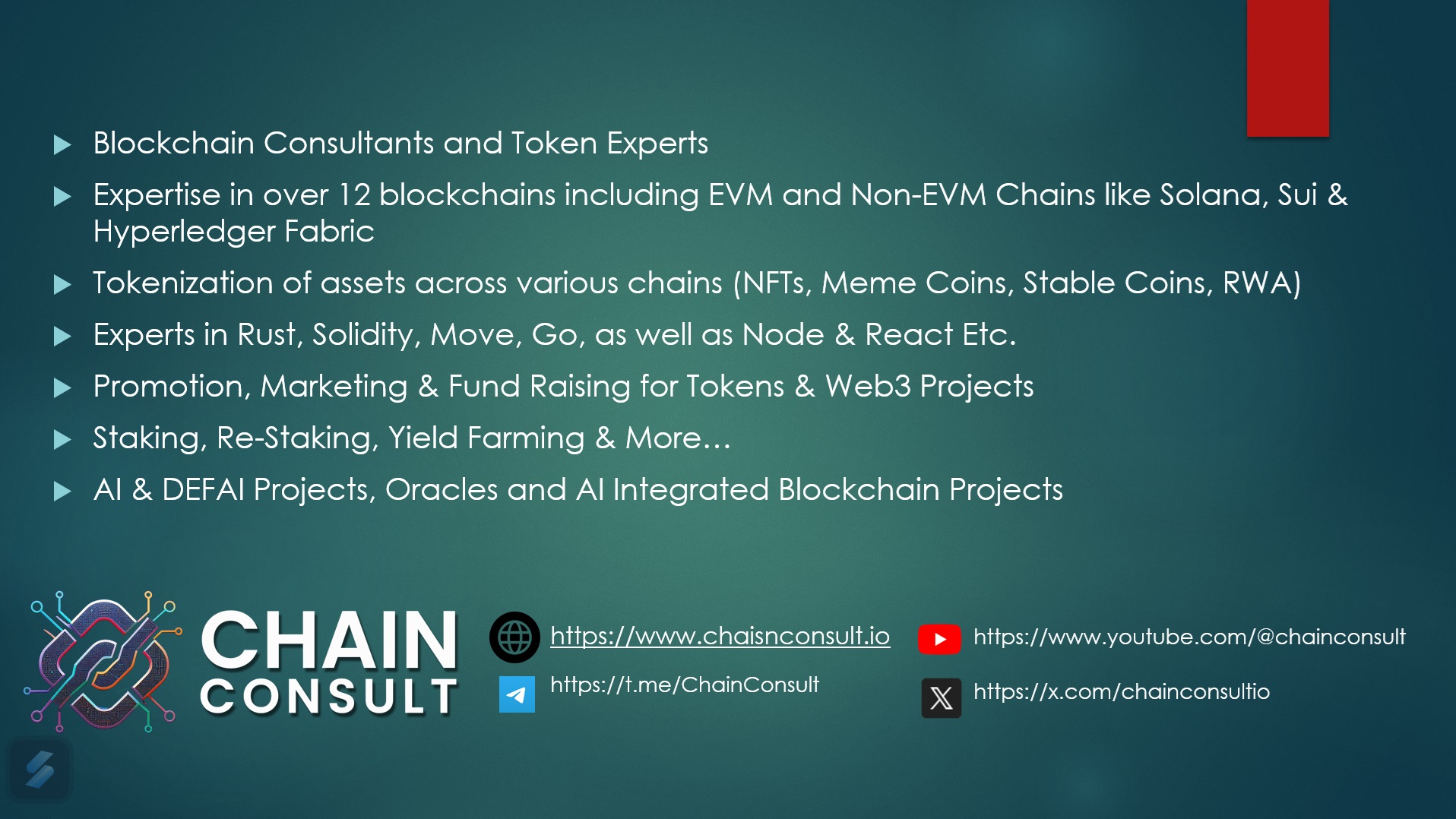Posts by: Blockchain Consultant

How Businesses Can Leverage Blockchain in 2025
Blockchain technology has evolved beyond cryptocurrencies and is now a foundational innovation that businesses across various industries are integrating into their operations. In 2025, blockchain will play an even bigger role in improving security, efficiency, transparency, and trust in business transactions. In this guide, we will explore how businesses can leverage blockchain in 2025, covering
Read More
Understanding PDAs in Solana: How Program Derived Addresses Work
Solana is one of the fastest-growing blockchain platforms, known for its high throughput and low transaction costs. One of its powerful features is Program Derived Addresses (PDAs), which play a critical role in building decentralized applications (dApps) on Solana. Understanding PDAs is essential for developers who want to leverage Solana’s unique capabilities to build secure
Read More
Interfacing Traditional Finance with DeFi: A Deep Technical Guide
The rise of Decentralized Finance (DeFi) has transformed the financial landscape, offering permissionless, transparent, and efficient financial services. However, traditional finance (TradFi) remains the backbone of the global economy. Bridging TradFi with DeFi is essential to unlocking new liquidity sources, fostering financial inclusion, and creating a seamless financial ecosystem. This guide explores the technical aspects
Read More
Building a Decentralized Exchange (DEX): A Step-by-Step Guide
Decentralized Exchanges (DEXs) have revolutionized the way people trade digital assets. Unlike traditional centralized exchanges (CEXs), DEXs allow users to trade directly from their wallets without intermediaries, enhancing security and transparency. If you’re interested in building your own DEX, this comprehensive guide will walk you through the essential components, development process, and security considerations. Understanding
Read More
The Best Blockchain Development Tools for 2025
Blockchain development has evolved rapidly, and as we enter 2025, the ecosystem is more robust than ever. With an increasing number of developers and businesses embracing decentralized applications (dApps), smart contracts, and blockchain-based solutions, having the right tools is crucial. Whether you are an experienced developer or just starting with blockchain, this guide will introduce
Read More
Blockchain Security Essentials: Best Practices for Developers
Blockchain technology is revolutionizing industries by providing decentralized, transparent, and tamper-resistant systems. However, blockchain applications are not immune to security vulnerabilities. Developers must adopt robust security best practices to protect smart contracts, transactions, and users from attacks. This guide provides a comprehensive overview of blockchain security best practices, including common threats, preventive measures, and secure
Read More
How Cryptographic Algorithms Strengthen Blockchain Security
Blockchain technology has transformed various industries by offering decentralized, transparent, and immutable transaction processing. However, the backbone of blockchain security lies in cryptography. Cryptographic techniques ensure data integrity, authentication, and confidentiality, making blockchain resistant to fraud and cyber threats. In this in-depth guide, we will explore the role of cryptography in blockchain security, examining its
Read More
Web3 Explained: Key Differences from Web2 and Why It Matters
he internet has undergone significant transformations since its inception. From the early days of static websites (Web1) to the interactive and centralized era of social media and e-commerce (Web2), we are now entering a new phase known as Web3. This next evolution promises decentralization, user ownership, and enhanced security. This article will explore the key
Read More
Understanding Blockchain Wallets: A Beginner’s Guide
Blockchain wallets are essential tools in the world of cryptocurrency, enabling users to store, send, and receive digital assets securely. Unlike traditional wallets that hold physical cash, a blockchain wallet stores cryptographic keys that grant access to your digital assets. This guide explains how blockchain wallets work, their types, security features, and how to use
Read More
Consensus Mechanisms Explained: PoW, PoS, and Beyond
Blockchain technology relies on consensus mechanisms to validate transactions, secure networks, and maintain decentralization. Different consensus mechanisms have emerged, each with unique strengths and trade-offs. In this guide, we will explore the most common consensus mechanisms: Proof of Work (PoW), Proof of Stake (PoS), and other alternatives shaping the future of blockchain. What is a
Read More
Understanding Layer 1 and Layer 2 Blockchains: A Complete Guide
Blockchain technology has evolved rapidly since its inception, addressing various challenges such as scalability, security, and decentralization. One of the key developments in this evolution is the distinction between Layer 1 and Layer 2 blockchains. Understanding these layers is crucial for anyone looking to grasp how blockchain networks scale and function efficiently. This article explores
Read More
Tokenization Explained: How Blockchain Is Revolutionizing Asset Ownership
Tokenization is a transformative process that is reshaping the way we own, trade, and manage assets. By leveraging blockchain technology, tokenization allows physical and digital assets to be converted into digital tokens, making ownership more accessible, secure, and efficient. This blog explores what tokenization is, how it works, its benefits, challenges, and real-world applications. What
Read MoreArchives
Recent Posts
- Account Abstraction on Ethereum: What It Means for Developers – Exploring ERC-4337 and how it changes dApp user experience.
- The Hidden Costs of Smart Contract Execution: Beyond Gas Fees – A deep dive into storage, computation, and mempool optimization costs
- The DID Revolution: How Decentralized Identity is Transforming Web3
- How to Raise Funding for Your Blockchain Startup
- How to Create & Promote A Crypto Token | Live Token Launch | 2025

